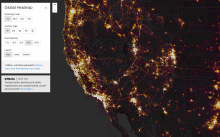The FTC Is Officially Investigating Facebook's Data Practices
The Federal Trade Commission’s Bureau of Consumer Protection confirmed Monday that has undertaken a non-public investigation into Facebook’s data practices, according to a statement from Tom Pahl, the agency’s acting director. The announcement comes just over a week after The New York Times and the The Guardian published explosive reports about the reported improper use of data belonging to 50 million Facebook users by the Trump-campaign affiliated data firm Cambridge Analytica.













































































